On a typical Tar Heel football game day, the UNC-Chapel Hill campus sees an influx of as many as 50,000 extra people. Thousands of cars converge on or near campus, and for a few hours, this one-day aggregation of cars and people makes our small town seem a little more like a big city.
On game days the Carolina Campus has the needs of any similarly sized city: food, water, health and emergency care, personal safety, traffic and pedestrian control, waste collection, shelter, retail and the ease of access to all these things that citizens expect in their daily lives. Months before game day, Finance and Operations departments, including Environment, Health and Safety; UNC Police; Transportation and Parking; Emergency Management and Planning; Facilities Services and UNC Student Stores, in collaboration with Athletics and many others, are in almost daily contact, planning for this major campus event.
Five Days Prior — Emergency Management and Planning
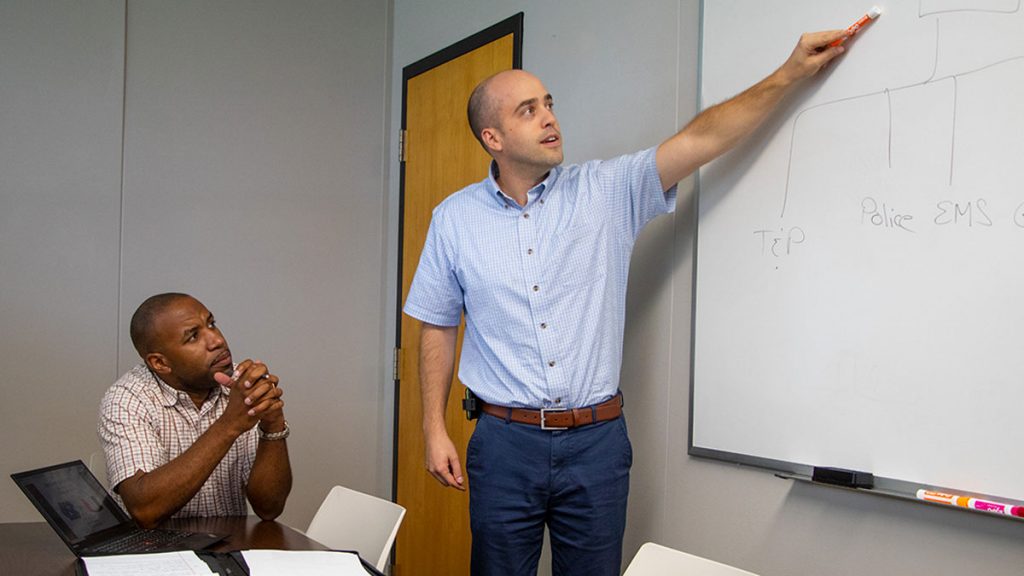
Emergency Management and Planning staff begin their football operations preparation as early as the Monday in advance of game day. They are responsible for developing and managing the incident action plan (IAP), which is the high-level operational plan for football command. The plan includes operations for Athletics, UNC Police, Transportation and Parking, event management and outside agency support, such as Fire, EMS and State Highway Patrol.
By the time the big day arrives, Finance and Operations staff fall into their rehearsed routine.
5:30 a.m. — Oversight and Management
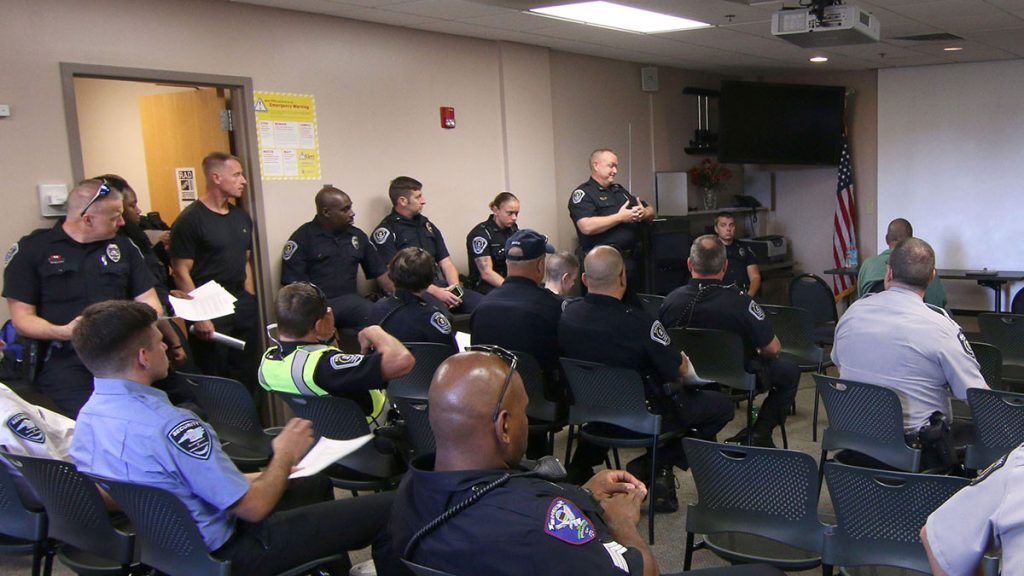
For a game scheduled at noon, game day oversight and management begins at the mind-numbing hour of 5:30 a.m., as approximately 320 Transportation and Parking staff members, including nearly 200 daily contract employees, start arriving at their campus stations to clear parking lots, put out 600 traffic cones and 150 signs.
UNC Police, UNC auxiliary officers and contingents from the State Highway Patrol, the Orange County Sheriff’s Office and the Chapel Hill and Carrboro police departments convene in the UNC Emergency Operations Command Center in the Public Safety Building to review the day’s plans.
As fire trucks and other fire units deploy on campus, the UNC Fire Marshals begin fire inspections and a fire watch at Genome Sciences building for the Chancellor’s pre-game event. They also begin the pre-game inspections at the stadium and will stay throughout the game, along with staff from Facilities Life Safety Services, to monitor the fire protection system.
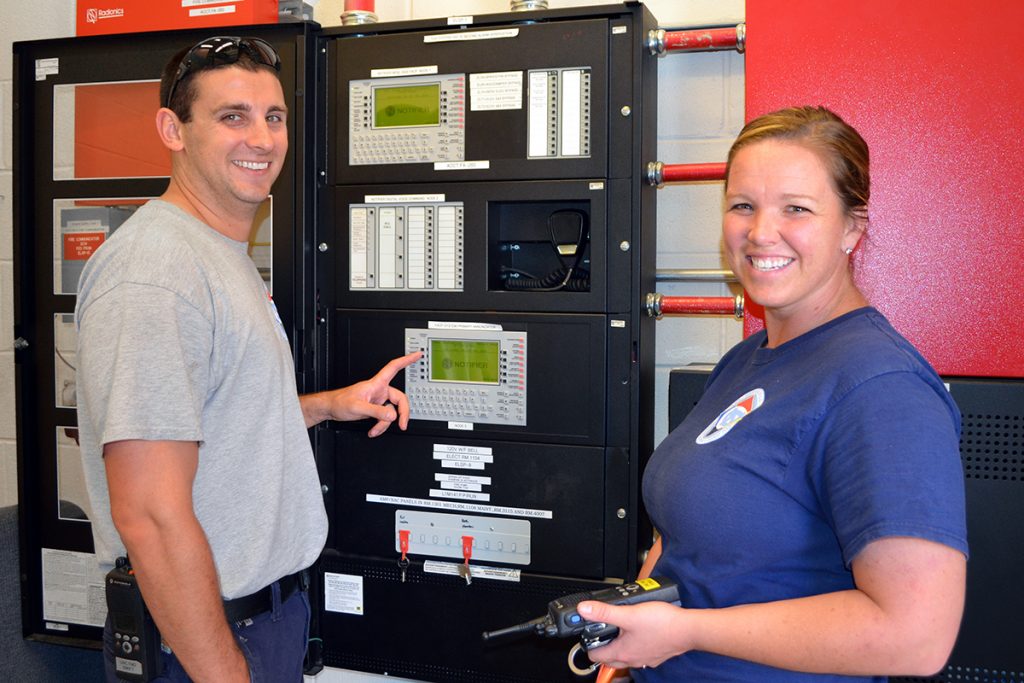
8 a.m. — The Command Center
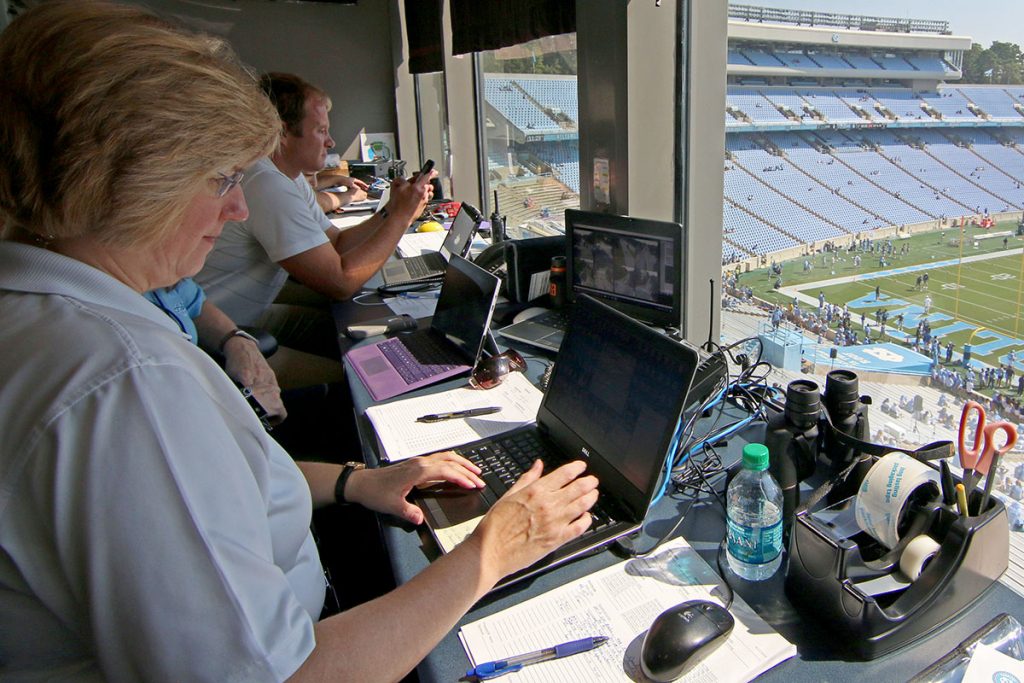
Finance and Operations employees and others will be in place to direct the thousands of cars and visitors through the campus and to the stadium, and two command centers, one at the Public Safety Building and another at Kenan Stadium, will manage crowd control and safety.
9 a.m. — Tailgating and Prepping for the Game
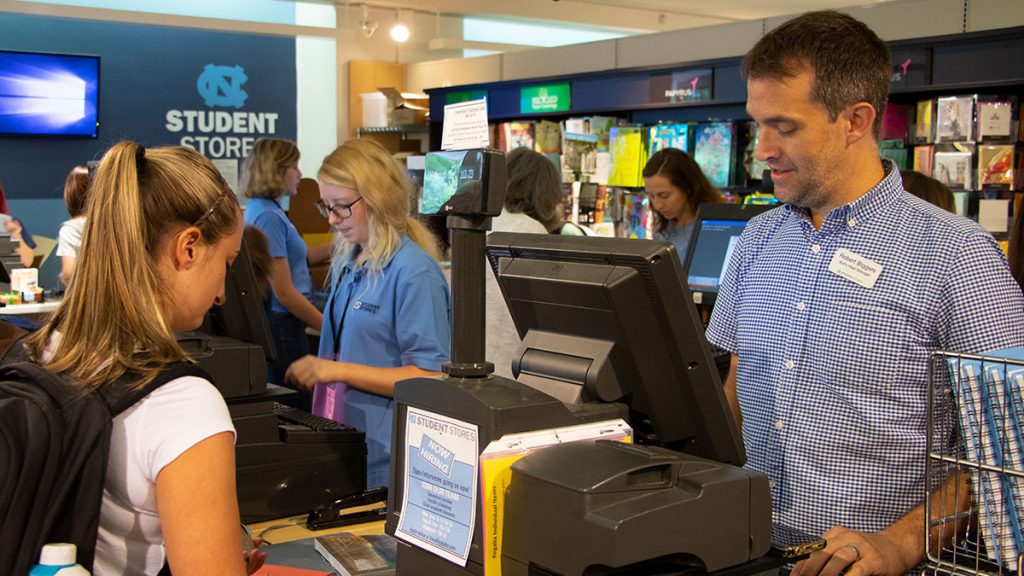
UNC Student Stores opens, and more than 80 employees begin to assist the rush of enthusiastic fans. If the Tar Heels pull out a win, sales will be about four times higher than if they don’t.
The Office of Waste Reduction and Recycling gather more than 15 Rameses Recycles student volunteers to assist tailgaters and others in recycling their waste.
Fans will begin tailgating soon, and public safety staff are stationed to ensure safe and responsible tailgating. Carolina Game Day Tailgating Safety Tips.
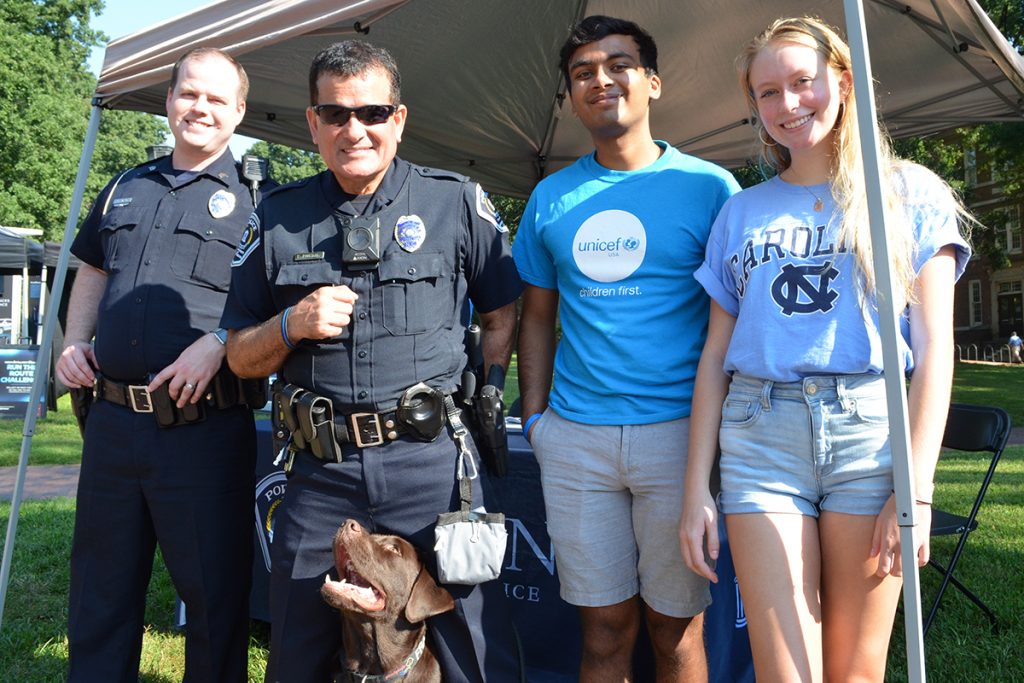
Noon — Game Time
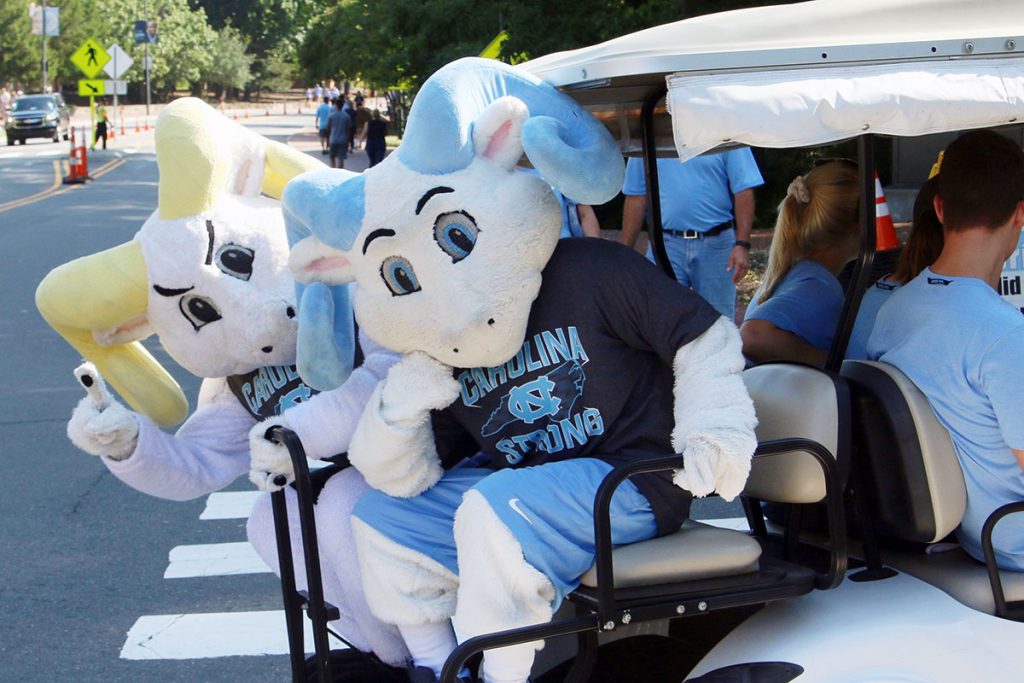
At kick off, as football fans settle into their seats, behind the scenes Finance and Operations staff and others will continue to work the event, while keeping the University’s research, education and operations functions operating like it’s a regular day on campus.
3 p.m. — Game Over
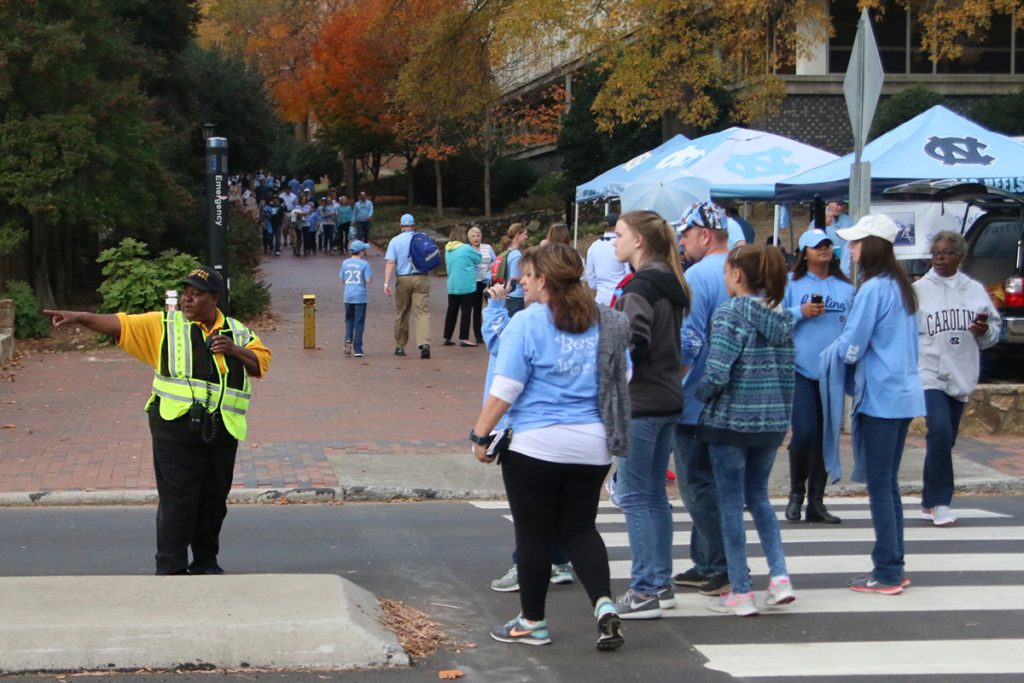
After the Tar Heels win another one, and for about the next two hours, the pressure on the safety and transportation units dramatically increase, as thousands of fans want to get back to their normal Saturday activities as soon as possible. Thousands more still have plenty of time and spirit, so they head to the Pit, UNC Student Stores and Franklin Street to shop, eat and celebrate.
7:30 p.m. — Clean Up and Debrief
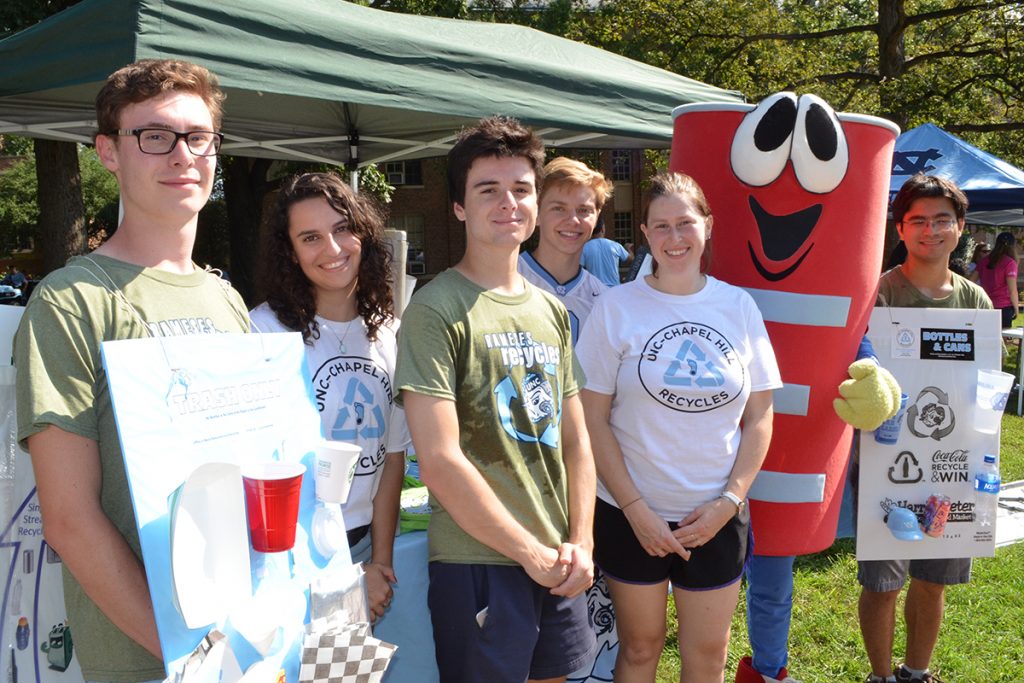
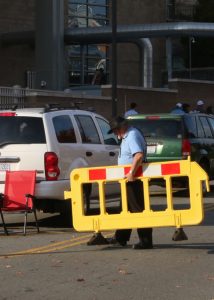
The campus has quieted, and the fire and emergency units have gone, but the pylons and barriers must be removed and the stadium must be cleaned. On average, 9.9 tons of waste will be collected and about 21% of that will be recycled, including 1400 pounds of bottles and other containers and 1.4 tons of cardboard. The following morning, around a dozen groundskeepers arrive to continue cleanup operations and get campus ready for the next week.
One important post-game function is a complete operational debrief, which the Emergency Management and Planning team leads. They review the football command operations post-event to determine what went as planned and what could be improved for the next game.
And in a week or two, as the Tar Heels take on another rival at home, the employees of Finance and Operations and all of those who support this fall ritual will do it all over again.
